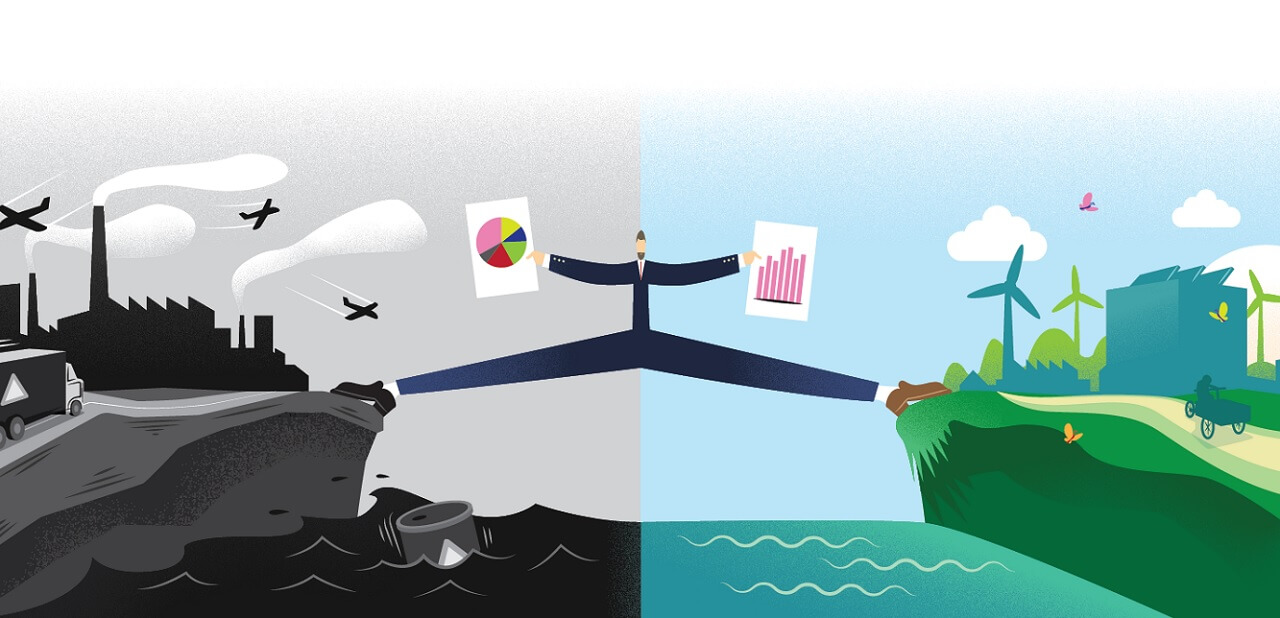CFOs, Be Honest About the Feasibility of Sustainability Ambitions

Author: Mohamed Bouker | Image: Ricky Booms | 24-09-2024
A few years ago, the business community embraced sustainability with enthusiasm, setting ambitious goals. Companies cut air travel, adopted electric vehicles, installed solar panels, and rolled out various green initiatives. However, the reality has proven more difficult. Transitioning to sustainability requires time, significant investment, and a balanced approach to stakeholder interests. The initial expectations of a swift transition are now giving way to a more sober realization: achieving sustainable goals is complex and might take longer than anticipated.
At the same time, new regulations - such as the Corporate Sustainability Reporting Directive (CSRD) - require more transparent sustainability performance reports. From 2024 onwards, large listed companies are required to report on their impact on people, the environment and climate change related risks. This not only covers CO2 emissions, but also, for example, how business activities affect biodiversity and human rights. The CSRD requirement will likely result in more detailed corporate plans and CFOs playing a more prominent role in sustainability policy.
Balancing act
Many CFOs are facing tough choices. Both expectations in society and regulations force them to invest in sustainability, while they are also responsible for keeping the business financially sound. This is an incessant balancing act, posing a huge challenge for CFOs to find strong business cases that are profitable while furthering sustainability.
A dairy producer cannot simply stop animal dairy production. This would come at the expense of profitability, which would result in delays in investments in development of more sustainable alternatives. The same applies to oil companies. It is not realistic to switch from fossil fuels overnight, as society is simply not yet ready for that.
It is key to remember that sustainability transitioning will differ in manner and speed across industries. In retail, significant progress is already being made: the range of plant-based products is growing rapidly and discarded furniture from home improvement stores is repurposed or recycled into new products. But other sectors face greater challenges. The introduction of electric airplanes, for instance, will still take some time, and the same goes for greening the mobility sector. Establishing a comprehensive infrastructure for electric transportation is no small feat.
Decisive long-term government policies are needed to reinforce the sustainability transition. When businesses and consumers know what to expect, they can make well-informed decisions about sustainability investments. The new government is pursuing a different direction than its predecessors, which is a challenge for both businesses and consumers.
Be transparent and honest
The realization that the sustainability transition is complex, costly, and time-consuming is slowly gaining ground. And the realism that comes with it is slowly seeping into financial plans and future expectations. This puts CFOs in a challenging position. Amidst growing pressure in society and stricter sustainability regulations, they are also responsible for financial solidity. The question raises how CFOs should balance these interests. Below is a list of key dos and don’ts:
- CFOs should closely monitor the expected returns of new, sustainable products or investments. Also, they should be realistic about how quickly outdated products and services can be phased out.
- CFOs should develop a good sense of how to successfully balance the interests of different stakeholders: government, shareholders, employees and customers.
- By extension, it is crucial for CFOs to report transparently to all stakeholders on progress and challenges. Shareholders will inevitably be disappointed at times, and CFOs should be realistic about this. A new production line or new products, for instance, may not immediately yield financial returns. In this case, the CFO should ask shareholders to be patient. At the same time, CFOs should be prepared for public turmoil from environmental activists increasingly enforcing sustainability plans.
I recommend CFOs to engage in conversation more often and, above all, to honestly and realistically explain the choices to be made. Consistently explain that a business can only become more sustainable if it remains financially sound. And that a company has nothing to gain from sustainable investments that do not yield financial returns. Many businesses prefer to avoid difficult conversations, but silence will, in the long run, only create major challenges.
Plotting a route
In short, the path to sustainability requires realism and transparency. CFOs must chart a clear roadmap, recognizing that the pace of progress will differ across industries and organizations. The objective is straightforward: transition to a sustainable model while maintaining financial health. The challenge lies in balancing ambition with practicality, and aligning social expectations with business realities. CFOs are the ones tasked with building those bridges.
This article was published in Management Scope 08 2024.
